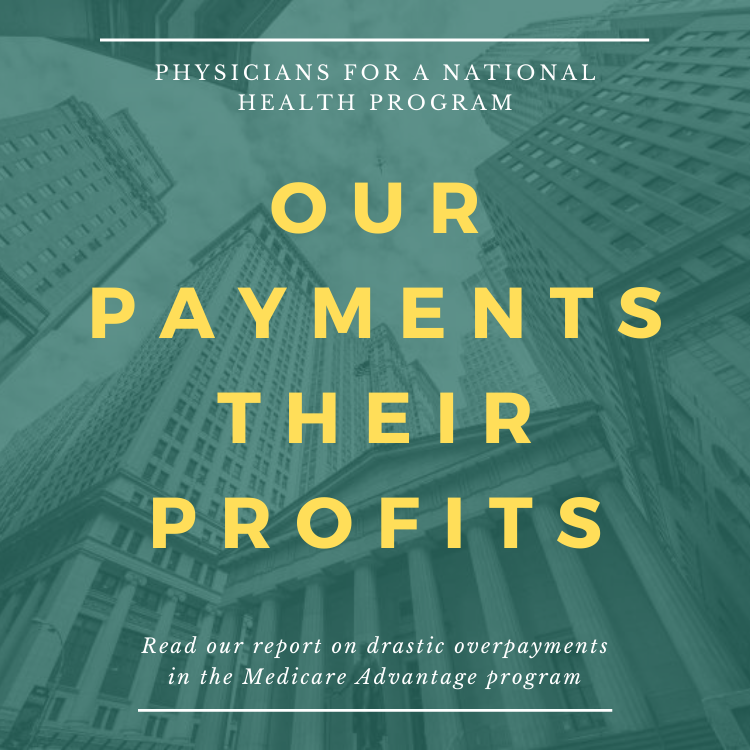Summary: Today we take a step back to consider a pivotal issue that arises in discussions of health reform generally and single payer specifically: Which is the better way to pay providers – FFS or capitation? The answer is: Both. That is, done right, both can work very well. And, sometimes, neither …
Comment:
By Jim Kahn, M.D., M.P.H.
Fee-for-service (FFS) means that providers bill and are paid for each medical service delivered – physician visit, test or intervention, hospital day.
Capitation means that providers are paid a monthly amount per beneficiary for all services or just some (e.g., primary care).
Let’s start with the claim that capitation is better than fee-for-service, full stop. Less costly and with excellent quality of care. This can be true in narrow circumstances. A very experienced provider organization that likes to be paid via capitation, with similar administrative and profit structures as the fee-for-service alternative, can often save money (offer a cheaper alternative) while maintaining quality of and satisfaction with care. Some early HMO history suggests that. It makes sense since some providers will raise their income in a FFS system by increasing the quantity of services.
However, the “similar administrative and profit structure” caveat often distinctly fails in the US. The most important example is Medicare. Traditional Medicare is FFS, and has very low overhead for the funder, CMS. In contrast, Medicare Advantage, the capitated option, uses insurance company intermediaries, with substantial administrative overhead and profits. Medical care costs are lower in Medicare Advantage, but total costs (including the overhead and profits) are substantially higher than FFS Medicare, by one estimate more than $100 billion higher. Quality of care is comparable. Financial barriers to care are higher in Medicare Advantage for individuals in poor or fair health. Perhaps related, sicker patients often shift to FFS. So, in Medicare, FFS is a better option. (Unfortunately, there is currently a process to shift FFS Medicare to fully or semi-capitated direct contracting, see HJM posts starting here.)
In Medicaid, capitation via private insurers has resulted in significant access to care problems.
Relative ease of oversight is a factor favoring FFS. A single payer FFS system facilitates strong rate regulation and use of comprehensive claims / payment data to identify and reduce fraud and waste.
Another consideration is how to pay for capital investments, such as a new hospital. Under both capitation and FFS it matters how operating margins (profits) are used. In our system, net income often feeds expansion. US single payer plans would eliminate this dynamic, removing the funding and/or approval of capital spending from the payment for care. This facilitates investment decisions based on system need rather than provider financial gain. It improves both FFS and capitation.
Looking to other wealthy countries, both FFS and capitation work well. Nearly two thirds of countries in the OECD use FFS payment, solely or in combination with capitation and salaries. Their costs, quality, satisfaction, and outcomes are all much better than in the US. See, for example, specific performance measures and global outcomes.
Of note, capitation in other countries is a different entity than here. For example, in the Netherlands, which relies on capitation, typically < 5% of premium payments go to overhead and profits (here, p.49), and those minimal profits are not retained by owners, instead they’re passed forward to pay for care in subsequent years. (Their “risk adjustment” system is also better, which we’ll discuss another day.)
In three-quarters of other OECD countries, capital spending is regulated by the government.
A key issue in contemplating FFS for single payer: the history of universal coverage suggests that provider supply constraints distinctly limit the jump in utilization from providing everyone very comprehensive insurance. If supply is limited (which it is), it’s impossible to increase services to make more money. So FFS payment does not (can not) result in huge cost increases. See our article. Further, US single payer proposals include system-wide global budgets, as done in other countries, providing a formal mechanism to slow cost growth if necessary.
So, you can see why the main answer is “both” – FFS and capitation both can work well with appropriate structure and regulation.
Finally, the “neither” part. For hospitals, one of the most common and successful payment methods is global budgeting. Each hospital receives a fixed annual allocation based on past services provided, with allowances for growth in utilization and costs. This removes the administrative burden of billing, and allows hospitals to focus on providing services. We’ve written an article on this, available soon.
The other “neither” — as noted above, salaries are also a fine way to pay providers.
The essential features of successful universal coverage are insuring everyone with the same comprehensive coverage, with minimal financial burden, using simple and fair payment systems, and removing profit as a driving force in the system. With the right structure and regulation, any reasonable payment modality can work.
http://healthjusticemonitor.org…
Stay informed! Subscribe to the McCanne Health Justice Monitor to receive regular policy updates via email, and be sure to follow them on Twitter @HealthJustMon.
